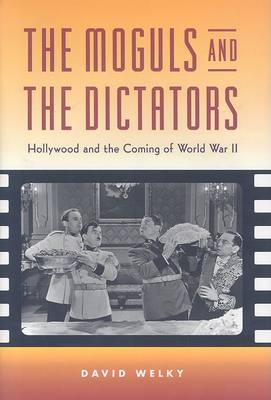In this fresh look at moviemaking during the Great Depression, David Welky examines Hollywood's response to the rise of fascism and the beginning of the Second World War. Through innovative analysis of hundreds of movies-including The Dawn Patrol, Goodbye, Mr. Chips, and Sergeant York-Welky traces the shifting motivations and arguments of the film industry, politicians, and the public as they negotiated how-or whether-the silver screen should portray Nazism, depict conflict overseas, promote Americanism, and support President Roosevelt's rearmament efforts. Hollywood, Welky argues, was a primary player in the debate between interventionists and isolationists. These competing groups vied for influence and control over the message Hollywood offered the public-either scorning it for being too timid or attacking it for being too aggressive. The national debate reached a fever pitch in September 1941, when isolationists in the U.S. Senate staged widely publicized hearings, accusing the movie industry of warmongering. While prewar Hollywood often reflected the principles of the Roosevelt administration, it also sometimes outpaced the cautious and politically astute president.
Providing Americans with the psychological preparation they needed to enter World War II, popular movies familiarized audiences with the wartime experience, offered definitions of patriotism and Americanism, and established the fundamental distinctions between democracy and dictatorship. Welky's depth of research and focused, analytical approach will be appreciated by historians as well as film buffs.
- ISBN13 9780801890444
- Publish Date 9 March 2009
- Publish Status Active
- Out of Print 18 February 2022
- Publish Country US
- Imprint Johns Hopkins University Press
- Format Hardcover
- Pages 448
- Language English
- URL http://jhupbooks.press.jhu.edu/ecom/MasterServlet/GetItemDetailsHandler?iN=9780801890444&qty=1&viewMode=1&loggedIN=false&JavaScript=y
